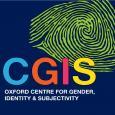Experimental Sources Workshop
CGIS Workshop: New perspective on sources: What can historians learn from bridging across time periods and regions?
On 4th June 2018, Fanny Louvier and Sukanya Raisharma organised an 'experimental' workshop entitled 'New perspective on sources: What can historians learn from bridging across time periods and regions?’. The workshop was facilitated by the Regius Professor of History at Oxford, Lyndal Roper, and gathered graduate students, early career researchers and established academics from the University of Oxford, Cambridge, Kent, University College London, Sciences Po, Florida State University and the Australian National University. They were asked to provide a sample of their primary sources to be studied and interpreted by the other participants. The sources were not limited to textual evidence but also included visual art and material objects. The aim of the workshop was to make historians apply their own methodological skills and theoretical frameworks to sources hitherto unfamiliar to them and to observe whether such an experiment would yield some fresh perspectives.
The participants were split up into five groups held together by a common thematic strain across time and space: travel and civilisations; household and labour; communicating the body; sex, disease and medicine; empires, states and narratives. Despite a deliberative breakdown of periodisation and regionalisation within the groups, a few participants found some common themes and approaches. Within the group 'communicating the historical body', for example, the participants found that the questions raised by Yushu Geng’s advertising images of nude women in early twentieth-century Republican China had surprising parallels to Grace Stafford’s fourth-century Roman mosaic of semi-nude women bathing.
Other participants found that the group discussion pushed them to think outside the box. Angela Flynn, who was part of the 'empires, states and narratives' group and studies the role of women in the fifth column in Madrid between 1936 and 1939, argued that the workshop made her aware of the divergent and creative ways historians of different time periods had been applying the concept of subjectivity to their political source-material.
Sasha Rasmussen’s work explores the possibility of a sensory history of modern femininity, through the experiences and perceptions of women in the early twentieth century. She focuses in particular on women's sensory experiences at the department store in France and Russia. She noted that being in a group on 'travel and civilisations' helped her think about social interactions – the role of the female shop assistant as a mediator between the buyer and the object – and interactions across cultures within the context of shopping.
Lucy Havard, an historian of science working on sixteenth-century English household recipe books, was part of the 'household and labour' group. She was encouraged to think beyond the recipes and utensils to focus instead on tracking down in parish registers the individuals who owned these books. Establishing the social position of these individuals added another dimension to her research on the preservation of walnuts.
Lucy McCann's work situates a collection of seventeenth and eighteenth-century ivory anatomical manikins within the history of obstetrics, gender and early modern bodies. Her research specifically examines the anatomy of the manikins of pregnant women from which layers of the torso can be removed to reveal organs and fetuses. However, the other participants in the 'sex, disease and medicine' group were curious about the faces and hairstyles of the manikins as they noted that the male manikins looked feminine. Following the group discussion, Lucy McCann planned to investigate this curious inversion in more details and reflect about the role of the face as well as the body in reproducing gendered identities.
Lyndal Roper concluded the workshop by remarking on how historians are reluctant to let other academics read their sources. She argued that showing one's primary evidence to informed but non-expert readers is a valuable exercise which can stop researchers from being too insular. The metaphor she used was the sudden change of track of the research train – unexpected analyses and radical perspectives can jolt researchers out of their inertia and create scope for new and original work.
Fanny Louvier is a D. Phil student at the University of Oxford. Her research focuses on the everyday life of domestic servants in France and Britain in the first half of the twentieth century. She is particularly interested in the role played by dress, food and leisure in the self-definition of female servants and the relationships between servants and employers.
Sukanya Raisharma is a D. Phil student at the University of Oxford. Her research examines inter-personal trust and conflict within monastic institutions in early medieval post-Roman kingdoms, which now span France, Italy, Germany and Switzerland. She analyses how intra-group (mis)trust dynamics of monasteries had an impact on rebellion, riots and social unrest in the local geographical area, on distant towns and cities, and also monastic houses.



